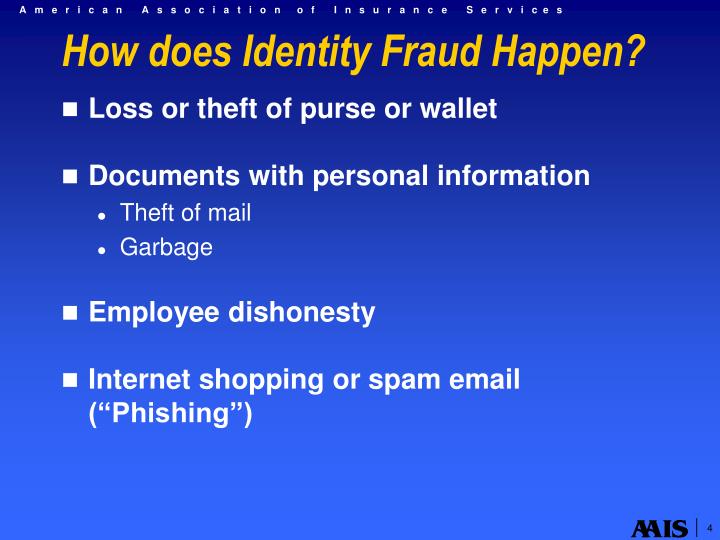
What Happens When Fraud is Suspected in a Claim?
Fraudulent claims can have serious consequences for both individuals and businesses involved in litigation. Identifying and handling suspected fraud requires careful investigation and gathering of evidence. It is crucial to have solid proof before making any accusations or taking legal action.
When there is suspicion of fraud, it is important to conduct a thorough investigation to uncover any evidence of misrepresentation or false claims. This may involve gathering documentation, interviewing witnesses, or even hiring expert investigators. The goal is to gather enough evidence to support the suspicion and prove the claim fraudulent.
Handling suspected fraud in a claim requires following the appropriate legal procedures outlined by the court system. This may involve notifying the authorities, such as law enforcement agencies or regulatory bodies, and providing them with all the evidence gathered during the investigation. It is important to cooperate fully with the authorities and provide any requested information to ensure a proper investigation.
If fraud is proven, severe penalties can be imposed on the individual or business responsible for the false claim. These penalties can include fines, imprisonment, or both, depending on the severity of the fraud. Additionally, the fraudulent claim may be dismissed, and the claimant may be required to pay back any money or benefits received as a result of the fraudulent claim.
Overall, handling suspected fraud in a claim requires diligence, attention to detail, and adherence to the legal process. By gathering solid evidence, following proper procedures, and cooperating with authorities, individuals and businesses can effectively address and resolve fraudulent claims. This ensures justice is served and helps maintain the integrity of the legal system.
Understanding the Signs of Fraudulent Claims
When it comes to litigation, suspicion of fraud in a claim is a serious matter. Fraudulent claims can lead to severe penalties for those involved, including fines and potential criminal charges. Therefore, it is crucial to be able to recognize the signs of fraudulent claims and conduct a thorough investigation to gather evidence.
One of the key indicators of a fraudulent claim is inconsistency or misrepresentation of information. This can include discrepancies between the claimant’s statements, documents, or evidence provided. It is important to carefully review the claim and cross-reference any supporting documents to ensure their accuracy and legitimacy.
Another sign to look out for is an unusually high claim amount. Fraudsters often exaggerate the value of their claim in an attempt to receive a larger settlement. It is essential to compare the claim to similar cases or industry standards to determine if it is within a reasonable range.
Furthermore, pay attention to the claimant’s behavior during the claims process. Fraudsters may exhibit suspicious behavior, such as being evasive or uncooperative when asked for additional information or evidence. Additionally, they may attempt to rush the process to avoid thorough investigation. These signs can indicate an attempt to hide fraudulent activity.
As an investigator, it is your responsibility to gather sufficient proof to support your suspicions of fraud. This can involve obtaining additional documentation, conducting interviews, or even hiring experts to analyze the evidence. Document all findings and keep a detailed record of the investigation process for future reference.
Once you have gathered enough evidence to support your suspicion of fraud, it is crucial to report it to the appropriate authorities or legal department. They will determine the next steps, which may include further investigation, legal action, or denying the claim based on the evidence presented. Cooperation with law enforcement or legal professionals is essential in handling suspected fraudulent claims effectively.
In conclusion, recognizing the signs of fraudulent claims requires careful investigation and attention to detail. Inconsistencies, misrepresentations, and unusual claim amounts are all red flags that demand further scrutiny. By collecting sufficient evidence and reporting suspicions of fraud, you can take the necessary steps to protect your organization and maintain integrity in the claims process.
Collecting Evidence for Fraud Investigation
When there is suspicion of fraud in a claim, it is important to gather proper evidence to support the investigation. Evidence is crucial in proving the occurrence of fraud and determining the appropriate penalties for those involved.
As fraud can result in serious legal consequences, including litigation and financial penalties, it is essential to approach the investigation with care and attention to detail. Here are some steps to help collect evidence for a fraud investigation:
1. Document and preserve all relevant information: Start by gathering any documentation related to the claim, such as medical records, invoices, and receipts. Ensure that all information is accurately recorded and safely stored for future reference.
2. Conduct interviews: Speak with individuals involved in the claim process, including the claimant, witnesses, and anyone else who may have relevant information. Take detailed notes of their statements and collect any supporting documents they may provide.
3. Authenticate documents: Verify the authenticity of all documents in question. This could involve comparing signatures, cross-referencing dates and records, or seeking expert opinion if necessary.
4. Review financial records: Analyze financial statements, bank records, and any other relevant financial documents. Look for any discrepancies or inconsistencies that could indicate fraud or misrepresentation.
5. Collect surveillance footage: If there is suspicion of fraudulent activities, collect any available surveillance footage that may support the claim. This could include security camera recordings, photographs, or video evidence.
6. Seek expert opinion: If necessary, consult with experts in fields such as forensic accounting or digital forensics to gather additional evidence and insights into the suspected fraudulent activities.
By following these steps and collecting solid evidence, fraud investigators can build a strong case against those suspected of fraud. It is important to conduct the investigation thoroughly and ethically, ensuring that all parties involved are treated fairly and due process is followed.
Reporting Fraudulent Claims to Authorities
When suspicion arises regarding fraudulent activity in a claim, it is crucial to promptly report the matter to the relevant authorities. This timely action helps in initiating an investigation and commencing the legal process.
Litigation is the primary method used to address fraudulent claims. By involving the legal system, it becomes possible to establish the truth and gather evidence that supports the suspicion of fraud. To initiate litigation, it is important to have substantial proof of misrepresentation or false information provided in the claim.
Before reporting the claim, it is essential to gather all the necessary evidence that substantiates the suspicion. This evidence may include documents, photographs, videos, witness statements, or any other relevant information. It is crucial to present a clear and accurate account of the suspected fraudulent activity.
| 1. Contact the appropriate law enforcement agency or regulatory authority responsible for handling fraud cases in your jurisdiction. Provide them with a detailed description of the suspicious claim and any evidence you have collected. |
| 2. Cooperate fully with the investigation process. This may involve providing further statements, participating in interviews, or providing any additional evidence that may be required. |
| 3. Keep a record of all communication and interactions with the authorities. This will help ensure transparency and assist in keeping track of the progress of the investigation. |
| 4. Maintain confidentiality during the investigation to avoid compromising the case or alerting the suspected fraudulent party. |
Reporting fraudulent claims to authorities is a necessary step in addressing and combating fraud. By cooperating with the investigation process and providing all relevant evidence, individuals and organizations can help protect themselves and the integrity of the claim process.
Cooperating with Insurance Investigators
When there is a suspicion of fraud in an insurance claim, it is essential to cooperate fully with insurance investigators to ensure a fair and accurate outcome. Insurance investigators are trained professionals who gather proof and evidence to determine the validity of a claim.
Cooperating with insurance investigators is crucial because if there is evidence of fraud, there can be severe penalties, including criminal charges and legal action. By working with investigators, individuals can show their willingness to be transparent and clear any suspicion surrounding their claim.
During an investigation, insurance investigators may reach out to the claimant to gather information, statements, and any supporting documentation relevant to the claim. It is important to provide accurate and complete information to investigators to aid in their investigation and help them establish the facts.
It is also essential to remember that insurance investigations are not meant to be adversarial but rather to ensure fair outcomes for all parties involved. By cooperating with investigators, individuals can help expedite the investigation process and contribute to the overall integrity of the insurance system.
Cooperating with insurance investigators includes responding promptly to requests for information, providing any requested documents such as medical records or receipts, and being truthful and forthcoming during interviews or questioning. These actions demonstrate a commitment to resolving any suspicion of fraud and help facilitate a thorough investigation.
If there is no evidence of fraud found during the investigation, the claim will proceed as normal, and the process will continue without any further repercussions. However, if fraud is detected, the consequences can be severe, including denial of the claim, cancellation of the insurance policy, and potential litigation.
In conclusion, cooperating fully with insurance investigators is essential when there is a suspicion of fraud in a claim. By providing accurate and complete information, responding promptly to requests, and being transparent throughout the process, individuals can help ensure a fair and accurate outcome while maintaining the integrity of the insurance system.
Understanding the Legal Consequences of Fraud
Fraud is a serious offense with significant legal consequences. When someone commits fraud in a claim, they are knowingly misrepresenting information or providing false evidence to obtain undeserved benefits. In the context of insurance claims, fraud can result in legal penalties for the perpetrator and have serious implications for the claim itself.
In order to prove fraud in a claim, it is necessary to gather sufficient evidence to demonstrate that the individual intentionally provided false information. This can include documents, witness statements, or other types of evidence that can establish the fraud beyond a reasonable doubt.
Once a claim is identified as fraudulent, the consequences for the perpetrator can be severe. They may face criminal charges, civil penalties, fines, or even imprisonment, depending on the jurisdiction and the severity of the fraud. Additionally, the person committing the fraud may be required to repay any benefits received as a result of the fraudulent claim.
From the perspective of the claim itself, fraud can lead to its denial or reduction. Insurance companies have a legal duty to investigate suspected fraud, and if they find evidence supporting the suspicion, they can reject the claim entirely. This can result in the claimant not receiving the compensation they were expecting.
In addition to the immediate consequences, fraud can also have long-term repercussions for individuals found guilty of committing it. A fraud conviction can tarnish a person’s reputation and make it difficult for them to obtain future insurance coverage or maintain a good credit rating. It can also lead to difficulties in finding employment, due to the negative implications associated with being convicted of fraud.
When fraud is suspected, both insurance companies and individuals should take the matter seriously. Insurance companies often employ specialized fraud investigators to gather evidence and build a case against the suspected fraudster. Individuals who suspect fraud and have evidence to support their claim may choose to pursue litigation against the perpetrator.
In conclusion, fraud in a claim can have serious legal consequences for those involved. It is crucial to understand the penalties, both criminal and civil, that can arise from committing fraud. By being vigilant and taking necessary steps to identify and address fraud, individuals and insurance companies can help protect themselves and the integrity of the claims process.
Handling Fraudulent Claims within the Organization
When there is a suspicion of fraud in a claim within an organization, it is crucial to handle it appropriately to protect the company’s interests and maintain the integrity of the claims process.
Penalties for fraudulent claims can be severe, ranging from fines to criminal charges, depending on the jurisdiction. Therefore, it is essential to thoroughly investigate any suspicion of fraud and gather solid evidence before taking further action.
The first step in handling a fraudulent claim is to document any suspicion. Record the details of the claim and any discrepancies or red flags that raise concerns. It is crucial to be objective and avoid making assumptions without concrete proof.
| 1. Initiate an Investigation | Once there is a suspicion of fraud, launch an internal investigation to gather evidence and facts. This may involve interviewing the claimant, reviewing documentation, and collaborating with relevant departments or external agencies. |
| 2. Look for Inconsistencies | Examine the claim and supporting documents for any inconsistencies or discrepancies. Pay close attention to dates, invoices, signatures, and any other relevant details. |
| 3. Engage Legal Counsel | If the investigation yields substantial evidence of fraud, it may be necessary to involve legal counsel. They can provide guidance on the next steps and represent the organization’s interests in potential litigation. |
| 4. Take Appropriate Action | Based on the findings of the investigation, determine the appropriate action to take. This may include denying the claim, terminating the claimant’s relationship with the organization, or pursuing legal action. |
It is important to note that handling fraudulent claims within an organization requires careful consideration of legal and ethical implications. It is essential to follow established procedures and consult with trusted professionals to ensure that the organization’s interests are protected while upholding the principles of fairness and justice.
Implementing Fraud Prevention Measures
Suspected fraud in a claim can have serious implications for both the claimant and the insurance company. To avoid such situations, it is essential to implement fraud prevention measures throughout the claims process.
An effective fraud prevention strategy starts with a thorough investigation. Claims should be carefully examined for any signs of misrepresentation or fraudulent activity. This can be done through documentation review, interviews with involved parties, and collaboration with law enforcement agencies, if necessary.
Collecting proof of fraud is crucial in handling suspected cases. This may include gathering supporting documents, such as medical records, witness statements, or surveillance footage. The collected evidence should be properly documented and cataloged for future reference and potential litigation.
To detect potential fraud, insurance companies can also use various technology tools and software programs that are designed to identify suspicious claims. These systems use algorithms and analytics to flag claims that may have a higher likelihood of fraud.
Another important aspect of fraud prevention is to create a culture of awareness and vigilance within the company. All employees should be trained on recognizing the red flags of fraud and reporting any suspicions to the appropriate authorities. Regular communication and training sessions can help reinforce this awareness and ensure a proactive approach towards fraud prevention.
Penalties for fraud should be clearly communicated and enforced to deter potential wrongdoers. This can include legal consequences, such as fines or imprisonment, as well as internal disciplinary actions, such as termination or suspension. By imposing strict penalties, companies can send a strong message that fraud will not be tolerated.
Overall, implementing fraud prevention measures is essential for protecting the integrity of the claims process. By conducting thorough investigations, collecting relevant proof, and promoting awareness within the company, insurance companies can deter and address suspicions of fraud effectively.
Training Employees to Identify Fraudulent Claims
Identifying fraudulent claims is essential for any business to maintain the integrity of their operations and minimize financial losses. By training employees to recognize the signs of fraudulent activity, companies can effectively protect themselves against potential fraud.
- Define Fraud: The first step in training employees is to clearly define what constitutes fraud. Employees should understand the various types of fraud, such as false claims, misrepresentation, and manipulation of information.
- Penalties: Train employees on the legal penalties associated with fraud, emphasizing the serious consequences that can result from engaging in fraudulent activities. This can help deter employees from participating in fraudulent acts and encourage them to report suspicious behavior.
- Investigation Process: Teach employees about the company’s investigation process and how suspicions of fraud should be reported. Provide guidelines on what information should be gathered and how to effectively document their findings.
- Proof and Evidence: Educate employees on the importance of gathering solid proof and evidence when detecting potential fraudulent claims. Emphasize the need for thorough documentation, including photos, invoices, statements, and any other relevant information.
- Identifying Red Flags: Train employees to be alert for red flags that may indicate fraudulent activity, such as inconsistencies in documentation, unusual claims patterns, or suspicious behavior from claimants.
- Report and Collaborate: Encourage employees to report any suspicions or concerns promptly. Establish a reporting system that allows for anonymity if desired, and stress the importance of collaboration with colleagues and management to gather additional evidence or verify suspicions.
- Litigation Support: Provide training on how to support the company in legal proceedings related to fraud. Employees should understand their role in providing evidence, testifying, or collaborating with legal teams, if necessary.
- Ongoing Training and Awareness: Fraudulent activities and techniques are ever-evolving, so it’s crucial to provide ongoing training to employees. Keep them informed about new fraud schemes and share best practices for identifying and preventing fraud.
By properly training employees to identify fraudulent claims, businesses can effectively protect their assets, reputation, and bottom line. It is an investment that pays off in preventing financial losses, maintaining customer trust, and preserving the integrity of the claims process.
Working with Fraud Experts and Consultants
When dealing with a suspected fraud claim, it is often necessary to involve fraud experts and consultants to assist with the investigation and litigation process. These professionals specialize in uncovering fraudulent activities and providing evidence to support the claim.
Fraud experts and consultants can play a crucial role in identifying potential fraud and gathering the necessary evidence to support your case. They have the expertise and experience to uncover misrepresentations, identify patterns of fraudulent behavior, and analyze financial records.
One of the primary responsibilities of fraud experts and consultants is to conduct a thorough investigation to determine the validity of the fraud claim. They will review all available documents, interview relevant parties, and collect any additional evidence that may be needed.
Working closely with fraud experts and consultants can help strengthen your case and increase the chances of successful litigation. They can provide valuable insights and guidance throughout the process, helping you understand the intricacies of the investigation and the potential penalties associated with fraud.
Moreover, fraud experts and consultants can assist in presenting the collected evidence in a convincing manner. They can help you organize and present the evidence in a way that is clear, concise, and persuasive to the court.
It is important to establish a strong working relationship with your fraud experts and consultants. Communication and collaboration are key to ensuring that all parties are on the same page and working towards a common goal.
In conclusion, involving fraud experts and consultants in your fraud claim can significantly enhance the investigation and litigation process. They bring invaluable expertise, knowledge, and experience to the table and can assist in gathering the necessary evidence and presenting it in a convincing manner. Working together, you can effectively address the fraud and seek appropriate penalties for the fraudulent activities.
Handling Fraudulent Claims through Litigation
When a suspected fraudulent claim has been identified through thorough investigation and gathering of evidence, litigation may be necessary to address the issue properly. Litigation refers to the legal process of resolving disputes through a court system. It involves presenting the evidence and arguments before a judge or jury, who will decide the outcome of the case.
In cases of suspected fraud, litigation serves as a means to present the proof of the fraudulent activity to obtain a favorable resolution. The party defending against the fraudulent claim will need to prove that the claimant engaged in misrepresentation or fraudulent practices to obtain the claim.
During litigation, the defending party will need to present compelling evidence to support their allegations. This can include documentation, testimonies, expert opinions, and other forms of evidence that clearly demonstrate the fraudulent nature of the claim. The evidence should establish a clear link between the fraudulent actions and the claim itself.
If the court finds the claim to be fraudulent, penalties may be imposed on the claimant. These penalties can include fines, repayment of the fraudulently obtained funds, and even criminal charges in severe cases. The severity of the penalties will depend on the jurisdiction and the specific circumstances of the case.
Handling fraudulent claims through litigation can be a complex and time-consuming process. It requires legal expertise and careful preparation to present a strong case against the fraudulent claim. However, litigation can be an effective way to hold fraudsters accountable and deter others from attempting similar fraudulent actions.
Protecting the Reputation of the Company
In cases where there is suspicion of fraud or misrepresentation in a claim, it is essential for a company to take action to protect its reputation. When a claim is under investigation or faces litigation, it can have serious implications for the company’s image and credibility. Therefore, it is imperative to handle the situation with care and professionalism.
First and foremost, it is crucial to conduct a thorough investigation to gather all the facts and evidence surrounding the suspected fraud in the claim. This investigation should be handled by experienced professionals who specialize in fraud detection. The investigative team should have access to all relevant documents and should interview relevant individuals to obtain information that could prove or disprove the suspicion.
Throughout the investigation, it is important to maintain confidentiality and not disclose any details or suspicions outside of the designated team. This will help protect the reputation of the company and prevent unnecessary damage. It is also advisable to involve legal counsel to ensure compliance with applicable laws and regulations.
If the investigation concludes that fraud or misrepresentation has indeed taken place, the company should take appropriate actions to mitigate the damage. This may involve reporting the suspected fraud to law enforcement agencies or regulatory bodies, as well as initiating legal proceedings against the responsible party.
Protecting the reputation of the company also involves being transparent with all relevant stakeholders, such as clients, business partners, and employees. Communicating openly and honestly about the situation can help maintain trust and loyalty. Additionally, implementing measures to prevent future fraud cases can demonstrate the company’s commitment to integrity.
It is important to note that allegations of fraud can have serious consequences, including legal penalties and damage to the company’s reputation. Therefore, it is crucial to gather sufficient proof during the investigation to support any claims made against the suspected party. This proof will not only help in pursuing legal action but also serve as evidence to substantiate the company’s commitment to uncovering and addressing fraudulent activities.
In conclusion, protecting the reputation of the company in cases of suspected fraud in a claim requires a thorough investigation and careful handling of the situation. By following proper protocols and being proactive in addressing the issue, a company can minimize any potential damage and demonstrate its commitment to honesty and integrity.
undefined
What should I do if I suspect fraud in an insurance claim?
If you suspect fraud in an insurance claim, it is important to gather as much evidence as possible. Document any suspicious activities or inconsistencies, and report your suspicions to the insurance company. They will conduct an investigation and take appropriate actions if fraud is confirmed.
How can I gather evidence of fraud in an insurance claim?
You can gather evidence of fraud in an insurance claim by documenting any suspicious activities or inconsistencies. Take photographs, gather witness statements, and collect any relevant documents or records that may indicate fraudulent behavior. This evidence will be crucial in supporting your suspicions.
What actions will the insurance company take if they confirm fraud in a claim?
If the insurance company confirms fraud in a claim, they will take appropriate actions to address the situation. This could include denying the claim, pursuing legal actions against the fraudster, and reporting the incident to the relevant authorities. The exact actions will depend on the severity of the fraud and the policies of the insurance company.
Should I confront the suspected fraudster in an insurance claim?
It is not recommended to confront the suspected fraudster in an insurance claim. Confrontation may escalate the situation and hinder any ongoing investigations. It is best to report your suspicions to the insurance company and let them handle the situation through their own established procedures.
What are some red flags that may indicate fraud in an insurance claim?
There are several red flags that may indicate fraud in an insurance claim. These include exaggerated or inconsistent injuries, conflicting accounts of the incident, a history of similar claims, suspicious activities such as quickly disposing of damaged property, and attempts to prevent or delay investigations. If you notice any of these red flags, it is important to report your suspicions to the insurance company.
What should I do if I suspect fraud in a claim?
If you suspect fraud in a claim, it is important to take immediate action. First, gather evidence to support your suspicions, such as documents, photographs, or witness statements. Then, report your suspicions to the relevant authorities, such as the insurance company or the police. It is important to not confront the individual directly, as this can potentially be dangerous. Let the authorities handle the investigation and provide them with all the evidence you have collected.
Can I confront the person I suspect of fraud?
No, it is not recommended to confront the person you suspect of fraud directly. Confronting them can potentially be dangerous and may jeopardize the investigation. It is important to report your suspicions to the relevant authorities, such as the insurance company or the police, and let them handle the situation. Provide them with any evidence you have gathered to support your suspicions and cooperate fully with their investigation.







